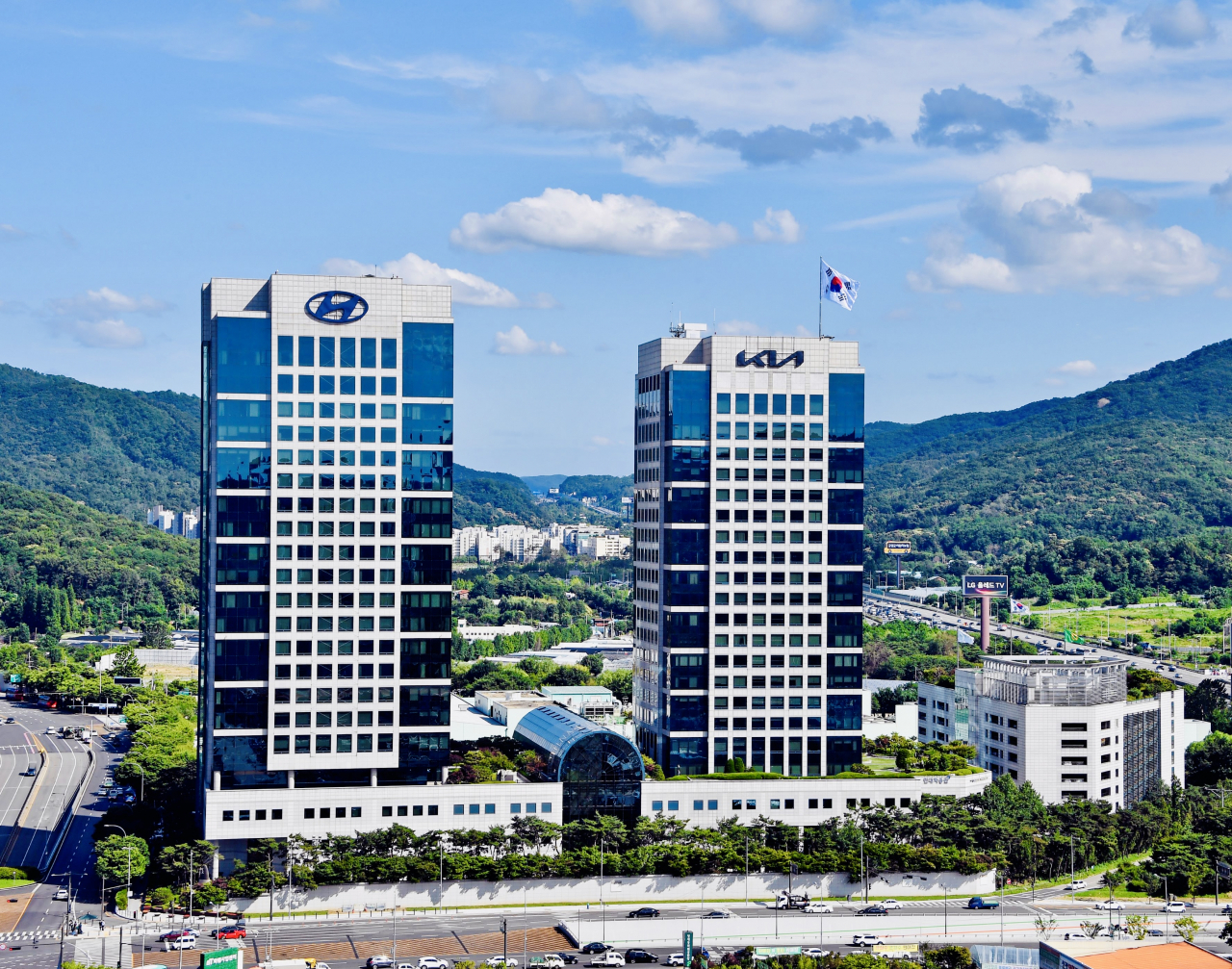 |
Hyundai Motor Group’s headquarters in Yangjae, Seocho-gu, southern Seoul (Hyundai Motor Group) |
Hyundai Motor Group said Monday it plans to bring back to Korea a capital surplus at its foreign units worth a total of $5.9 billion, taking full advantage of the nation’s recent corporate tax revision as well as its upbeat sales abroad in recent years.
Under the scheme, the Seoul headquarters plans to boost dividends payouts to foreign units with good performance, including its US and European operations, and the dividends will be invested into expanding production of electric vehicles at home.
Across its affiliates, the auto giant will secure $2.1 billion, $3.3 billion and $200 million from Hyundai, Kia and parts-making unit Hyundai Mobis, respectively.
Of the dividends secured, 79 percent will be wired to the Seoul headquarters by the first half of the year, while the remaining 21 percent will be sent by the end of the year, the auto giant said.
“This year, we have extended dividends payouts to our foreign subsidiaries by 4.6-fold compared to a year earlier,” said a Hyundai official. “Our overseas operations in the US and Europe have greatly improved their earnings over the past two years and now have more reserve money even after a series of investments there.”
Hyundai Motor America posted 33.7 trillion won ($26 billion) in sales last year, up 47.2 percent from a year earlier. Other subsidiaries with robust growth included Hyundai Motor India, Hyundai Motor Manufacturing Czech, Kia America, Kia Autoland Slovakia and Kia EU.
The carmaker’s reshoring of this sizable amount of cash comes following a revision to the nation’s corporate tax law, which exempts corporate taxes on dividends paid to foreign units as they have already been taxed overseas. Only 5 percent of the dividends are subject to taxes in Korea from this year.
“By using the tax-free dividends, the company can reduce dependence on loans to improve financial stability overall,” the company official added.
With the newly secured funds, the carmaker plans to expand further the production capacity of its EV plants in Korea: the Hyundai plant in Ulsan and the Kia plant in Hwaseong.
The funds will also be used to develop a next-generation EV platform and electric cars, as well as to accelerate research and development.
In April, Hyundai Motor Group announced that it will pour some 24 trillion won in investments into the domestic electric car business by 2030. It vowed to expand the annual EV production capacity both at home and overseas to 3.64 million units to cement its position as the global No. 3 carmaker in the cited period as well.
Experts also say the new cash will be helpful to lighten the burden of the massive investments it has been making in the US.
“Considering that it has been shelling out trillions of won to set up EV production bases in North America due to the Inflation Reduction Act, it would be better for Hyundai to use the reserve money at least for the domestic EV business,” said Kim Pil-su, a car engineering professor at Daelim University.
Last year, the carmaker pledged to build an EV plant in Georgia, US with an annual production capacity of 300,000 units by 2025. It recently shared its plans to pour some 6.5 trillion won and 5.7 trillion won into two US joint ventures with South Korean battery makers SK On and LG Energy Solution, respectively, to produce EV battery cells -- enough supply for a total of 600,000 EVs.
“Hyundai has been injecting a small portion of money into research and development compared to the size of its revenue,” Kim added. “With Tesla and other rivals all out to develop cost-effective and high-quality electric cars, it might have been a wake-up call for the carmaker to expand investment in research to compete head-on in the global EV race.”







